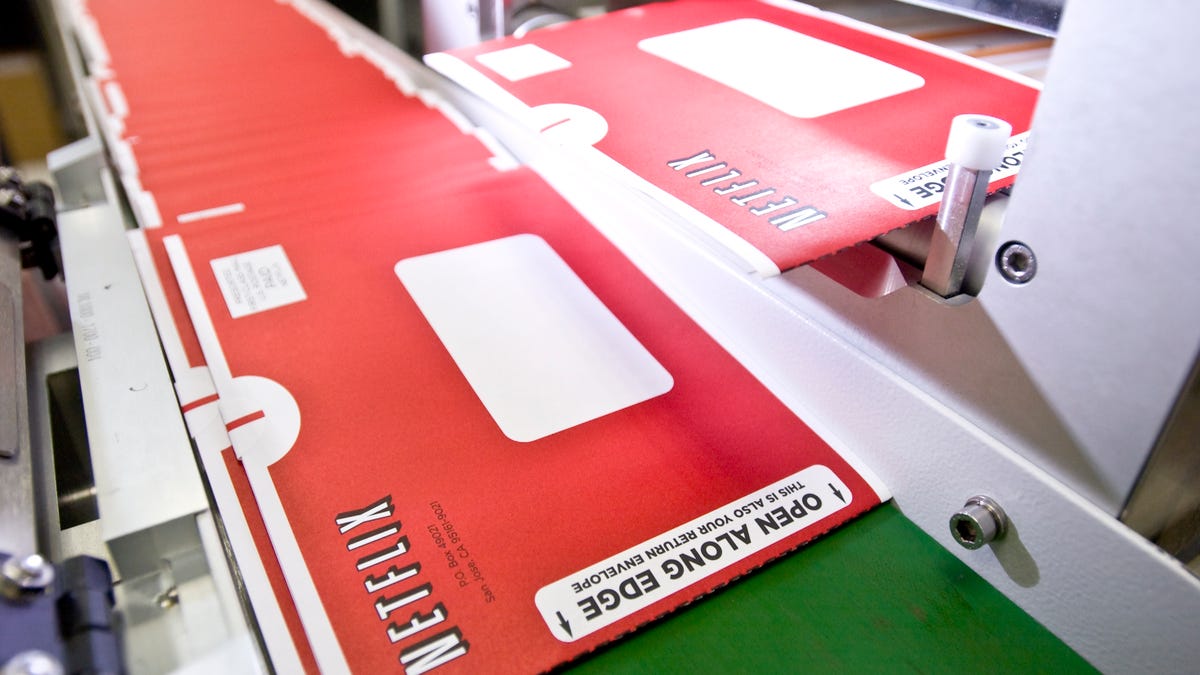Why Netflix's CFO decided to go
Barry McCarthy, who helped create the pioneering Web video service, banked more than $40 million before leaving. But don't panic: he says the company is in good shape.

In 2004, Barry McCarthy, Netflix's outgoing chief financial officer, wanted to try something new and planned to resign, according to people close to him. He balked when he saw that the Web video service faced a series of threats, including an attempt by much larger rival Blockbuster to deliver DVDs to people's homes.
The sources said that at the time, McCarthy joked that his reason for staying was that you don't walk away from friends in a knife fight.
On Tuesday, Netflix announced that McCarthy, 57, would step down this week, ending an 11-year run in which he helped shape one of digital entertainment's biggest success stories of the past decade. McCarthy said yesterday, while speaking at the Barclay's investor conference, that he is leaving Netflix because he wants to try his hand at running a company, according to a report in Dow Jones. McCarthy did not say where he might go.
Anytime a long-time senior executive departs unexpectedly, investors and media question whether the exec was fired, butted heads with the CEO, or is fleeing a sinking ship.
McCarthy wrote CNET via e-mail today and said "You can infer from the record in 2004 that I wouldn't be leaving unless things were in very good shape."
McCarthy's reward
Perhaps feeding some of those fears were McCarthy's stock sales on his way out the door that totaled more than $40 million. In the last month at Netflix, McCarthy recorded two separate clusters of stock sales. On November 4, McCarthy sold more than 130,000 shares for prices ranging between $167.51 and $173.20, and generated more than $21 million.
In the second round of selling, just days before Netflix announced his departure, McCarthy sold 100,000 shares, the majority of which brought a price of about $200 a share, records show. The tally from those transactions came to about $20 million.
Prior to November, the largest number of shares McCarthy had sold at any one time was 57,000 in March 2009. The good news about the sales is they suggest his departure wasn't abrupt.
McCarthy told CNET that 230,000 shares is about 51 percent of his ownership (meaning stock and options) and that means he still has 49 percent "riding on the future success" of Netflix.
"You should be confident that I'm leaving the business in good shape," McCarthy told attendees of the Barclay's conference, according to Dow Jones. "There is nothing that I know that you don't know that would cause you to be sleepless about your position in the stock."
As for any possible cracks in McCarthy's relationship with Netflix CEO Reed Hastings, few have emerged over the past decade. In 2008, McCarthy said during a podcast interview with the Unofficial Stanford blog that Hastings recruited him while he was on a skiing trip in 1999 and a week later he was working for him. Netflix signed him with a salary offer of $170,000 and a $20,000 bonus if he met certain goals. (In 2009, McCarthy earned $607,000 in base pay).
McCarthy said during his podcast interview that he accepted the job because "Hastings was time tested" and because he had "tremendous amount of confidence in the management team" at Netflix.
To Hasting's credit, Netflix has seen little turnover among his senior staff. The team has remained the same since 2000. Few companies enjoy that kind of continuity.
McCarthy appears to have groomed a successor in David Wells, formerly Netflix's vice president of financial planning and analysis. Wells has been described as McCarthy's right-hand man in finance.
Hot property
McCarthy didn't say where he might be headed but he is likely to have plenty of those "broader professional opportunities" that Netflix mentioned in its statement about his departure.
Under his belt is a decade-long stint at Netflix, a company he helped take public in 2002. McCarthy can boast that not only was he a big part of a company that completely overhauled the way people rent movies and triumphed over far larger rivals like Wal-Mart and Blockbuster, but is now spearheading a second revolution in video entertainment.
"There aren't a lot of companies in Silicon Valley who have been successful at reinventing themselves for revenue 2.0 of their business model," McCarthy said in the podcast two years ago. "Fortunately for us Reed took us down the path of investing heavily in digital distribution of feature film several years ago."
Hastings foresight helped Netflix usher in the rise of Web TV, and enabled the company to take a huge lead over others in the sector, including Apple, Google, and Amazon. The company, with its 17 million subscribers, is now poised to challenge cable TV services for the public's shrinking entertainment dollars. But in the interview, McCarthy also identified what he considered to some of Netflix's biggest challenges. Little has changed since then.
"Two things have to happen for digital to become a mass market," McCarthy told the Unofficial Stanford blog. He said one has to be adoption of a device that enables viewers to watch video delivered over the Internet to their TVs. And he said there also "needs to be compelling content licensed by studios to folks like us and Amazon and Apple and others. We all need access to content."

